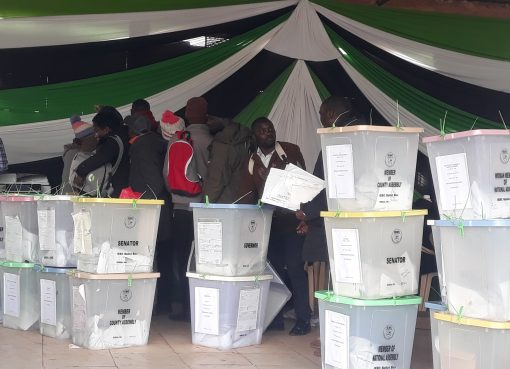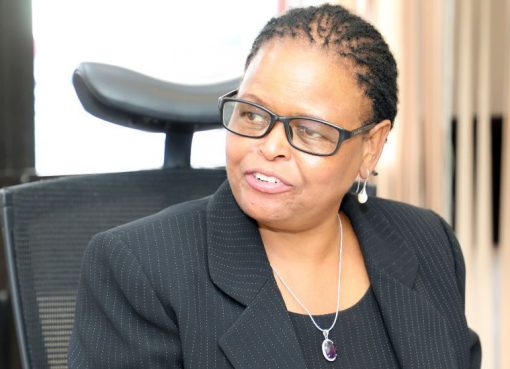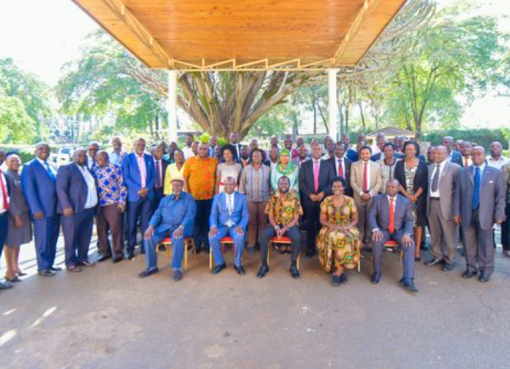Investments, Trade, and Industry Cabinet Secretary Moses Kuria has said that the construction of the County Aggregation and Industrial Park (CAIP) in Bomachoge Borabu Sub County, Kisii County, will significantly improve the lives of the residents.
Speaking during the groundbreaking ceremony in the same sub-county on Wednesday, CS Kuria noted that Kisii has invested in agriculture, including banana, coffee, and avocado farming, and therefore, the project will boost these agricultural activities.
He said the multi-million project will reduce post-harvest losses that have been previously witnessed by farmers, noting that only 20 per cent of the agricultural produce harvested in the region gets to the outside market in Nairobi.
The CS added that farmers will no longer bear the cost associated with transporting the produce from the farms to the capital city for export, as the same will be done locally at the industrial park.
Kuria said they will equip the facility with machines to enable the farmers to take part in value-added activities such as the production of avocado oil and flour from bananas.
“As the government, we want low-income earners to take part in value-added activities including packaging, processing, cooling, drying, and extracting their produce to avoid waste, and this will transform the economy of this county,” he noted.
Kisii Governor, Simba Arati, lauded the President for considering Kisii as one of the 21 counties in the first phase of the project, saying it will transform the country into an industrialised economy by 2030.
Arati noted the county has several key value chains, including coffee, avocado, indigenous vegetables, and bananas, with high post-harvest losses which can be minimised if the produce is value-added to products.
Notably, small-scale farmers in Kisii account for over 75 per cent of the total agricultural output; however, cases of post-harvest losses and access to markets have been reported as the main challenges to farmers.
As a result, the governor pointed out that the establishment of CAIP is a timely move that will promote agricultural development and contribute to a more sustainable future by improving food security, reducing wastage, and increasing market opportunities.
The county boss said the locals will greatly benefit from the project, as they will get many employment opportunities starting from the construction process up until the industry is up and running.
“The CAIP will improve market access, reduce the cost of marketing and distribution, support small-scale farmers in terms of market access, increase efficiency, enhance the local economy, increase the competitiveness of local businesses, increase revenue, and improve logistics and supply chain,” he added.
Arati pointed out that, as part of Corporate Social Responsibilities (CSR), there will be infrastructural transformation, with many of the roads, water supply, schools, and health facilities, among other social amenities, being improved.
Kenya National Chamber of Commerce and Industry (KNCCI) Representative, Ken Onditi, lauded the government for launching the initiative in four counties within the Nyanza region, saying it will bring change to the lives of the citizens.
Onditi said the farmers will be able to get desirable income from their produce as the aggregation centres will have cold storage facilities for the storage of their agricultural goods.
He added that the project will entice the young people to embrace the agricultural sector, as they will be assured that once they harvest their produce from the farm, they will have a place to store it for sale locally and internationally.
The Kenya Kwanza administration is keen on constructing the County Industrial and Aggregation Parks (CAIP) in the counties as a way of boosting agriculture and creating additional jobs in the country.
The project is a partnership between the State Department for Industry and the Council of Governors, and each county is expected to allocate Sh. 500 million towards the initiative.
By Mercy Osongo





